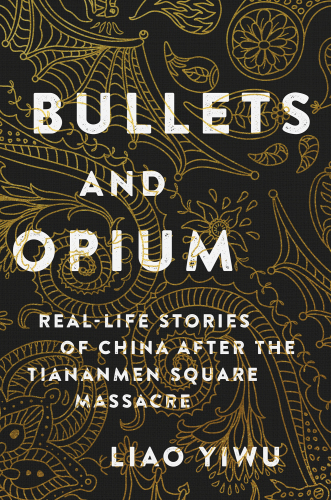
Bullets and Opium
Real-Life Stories of China After the Tiananmen Square Massacre
کتاب های مرتبط
- اطلاعات
- نقد و بررسی
- دیدگاه کاربران
نقد و بررسی

A survivor of the 1989 Tiananmen Square massacre offers a searingly honest examination of the lives broken by that momentous event. Poet Liao (For a Song and a Hundred Songs: A Poet's Journey Through a Chinese Prison, 2013, etc.) presents a series of harrowing, unforgettable tales of hardship of Chinese who essentially forfeited their youth due to their revolutionary fervor during Beijing's Tiananmen demonstrations in June 1989, when the authorities cleared the square with tanks, killing or injuring thousands of protesters. Unlike the more privileged Beijing students, whose parents had connections and could spirit their children out of the country, the "June Fourth thugs," as the Chinese authorities named them, took the brunt of the violence for their zealous actions, such as throwing eggs at a Mao Zedong portrait. Most received harsh prison sentences involving appalling conditions and slave labor. For reciting a poem about the massacre, "rebel poet" Liao was sentenced to jail, torture, and slave labor. When he got out, he endured "a living hell" in terms of emotional turmoil, a broken marriage, sexual dysfunction, unemployment, and constant police surveillance. Ultimately, the only solace he found was in his mission to seek out and interview fellow "thugs," whose stories mirrored his in many ways: idealistic youth who were swept up in general democratic spring fever, against the wishes of their wary parents incubated in the Cultural Revolution. As these powerful profiles clearly demonstrate, they paid dearly for their activism, suffering the brutality of the Chinese prison system and "education through labor" (including exhausting days making latex gloves for the American market) followed by joblessness, homelessness, and shunning from family and friends. The details about Liao's interviewees--e.g., "the performance artist," "the idealist," "the arsonists," "the street fighter"--are excruciating and intimate. Had he not fled the country in 2011, they may never have emerged; after all, three decades later, "the regime that committed the massacre is still in power." An indispensable historical document capturing the plight of "people scarred by history and then worn down by money and power."
COPYRIGHT(2019) Kirkus Reviews, ALL RIGHTS RESERVED. (Online Review)

June 24, 2019
Describing himself as a “remembrance worker,” former political prisoner and poet Liao compiled this album of harrowing interviews of fellow protesters to mark the 30th anniversary of the Tiananmen Square massacre. On June 4, 1989, Communist Chinese troops murdered and injured thousands of demonstrators to quash the budding pro democracy movement. Upon reciting his poem about Tiananmen Square in 1990, the author was imprisoned and tortured for four years. Following his release, he eked out a living until 2011, when he escaped and settled in Germany. Part I includes nine profiles of “working-class people and peasants” present at the square in Beijing on June 4, who recall the exhilaration of the demonstrations (“it felt like we were celebrating a holiday”) and then the carnage, with “pools of blood everywhere.” Some recount prison experiences similar to Liao’s. Part II, titled “Sichuan,” for Liao’s native province, includes a sardonic self-description as the only “writer in China who writes exclusively for the police” because of the surveillance he has been under. The dark tone reflects the author’s struggle to come to terms with his history of displacement and witness by honoring those who perished. Liao succeeds in sharing the mental and physical damage protesters of his generation endured
.

Starred review from July 1, 2019
Beginning in April 1989, thousands protested for democratic reforms in Beijing's Tiananmen Square. On June 4, the Chinese People's Liberation Army violently crushed this protest. A year later, musician and poet Liao (For a Song and a Hundred Songs) was arrested and spent four years in prison for composing a poem about the massacre. After being released from prison, Liao began the dangerous task of collecting the stories of those who participated in the protests, the result of which is this book. Much of the media coverage and subsequent writings focus on the college student protest leaders, many of whom fled China as soon as possible. However, this work concentrates on the working-class participants unable to leave. These touching and challenging stories shed light on an event that the Chinese government works hard to suppress. Their value is enhanced by the inclusion of an afterword about the final days of writer Liu Xiaobo's life, and appendixes with biographical information on 202 people killed and 49 wounded in the massacre. VERDICT This captivating work is essential for readers interested in China's recent history.--Joshua Wallace, Tarleton State Univ. Lib. Stephenville, TX
Copyright 2019 Library Journal, LLC Used with permission.

























دیدگاه کاربران